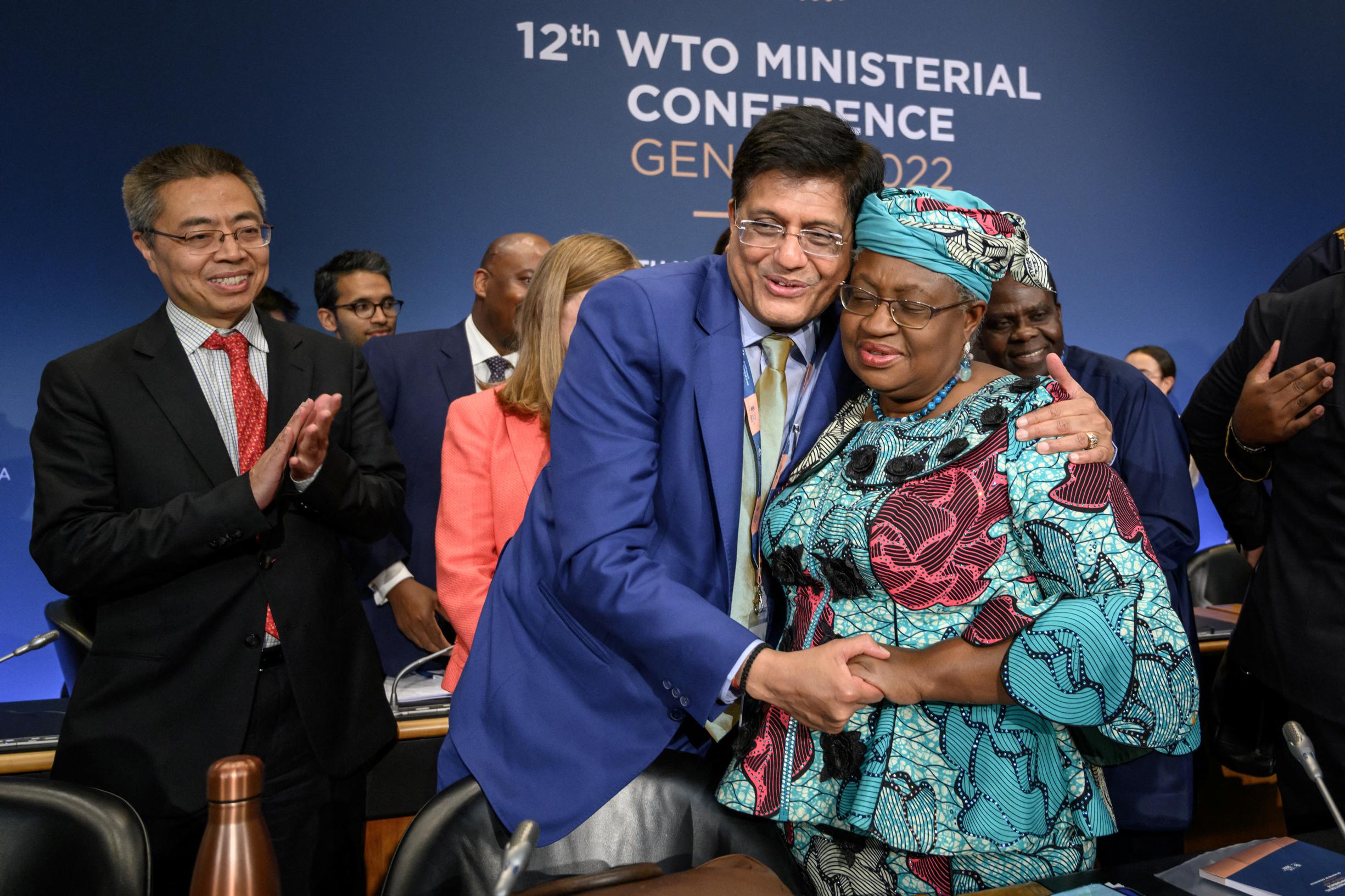WTO member states have agreed on patents for COVID-19 vaccines, fisheries support and e-commerce.
At about five o’clock this morning, the negotiators finally came out. After four days of meetings – a day longer than planned – the WTO can finally count on another success. The 120 trade ministers meeting in Geneva approved a package of measures that Secretary-General Ngozi Okonjo-Iweala called the “Geneva Package”.
The most obvious part is the agreement to partially lift patent protections for Covid vaccines. This has been negotiated since the beginning of the pandemic. As a result, the agreement will not make much sense in this area. There is now a surplus of coronavirus vaccines.
An agreement was also reached on support for the fisheries sector. This is important, because the financial support many countries provide to fishermen leads to overfishing in vulnerable fishing grounds. Reducing this subsidy could protect fish stocks. The agreement was difficult, because some countries, such as India, wanted special treatment.
Moreover, member states agreed to extend the moratorium on import duties for digital products. In specific terms, this means that anyone who subscribes to Netflix does not have to pay any import duties. For a while, this freeze seemed to be about to end, which could leave the digital economy facing financial barriers and complications. That would have been an embarrassment to the WTO, as the institution is trying to address such barriers.
† Optimism prevails in the high bloc of free trade in Geneva
Overhaul
A statement on global food security has been developed. It has to do with the growing trend of food-producing countries to take protectionist measures. For example, Indonesia recently imposed restrictions on the export of palm oil in order to have enough stock for its population. In a ministerial statement, ministers agreed that such measures should be “temporary, targeted and transparent” and “compliant with WTO rules”.
Finally, the ministers also decided that the WTO must be reformed. This is important, because the institution has been in crisis for some time. Decision making procedures take a long time and are not efficient enough. A few years ago, in protest, the United States sabotaged several appointments to the body responsible for adjudicating trade disputes.
European Trade Commissioner Valdis Dombrovskis tweeted: “The WTO needs to be reprogrammed to remain relevant in the 21st century.” “We’ll start right away, and hopefully, we’ll be able to hit the nail in the head at the next ministerial conference.” The next conference is scheduled for 2024.

Evil tv scholar. Proud twitter aficionado. Travel ninja. Hipster-friendly zombie fanatic.

